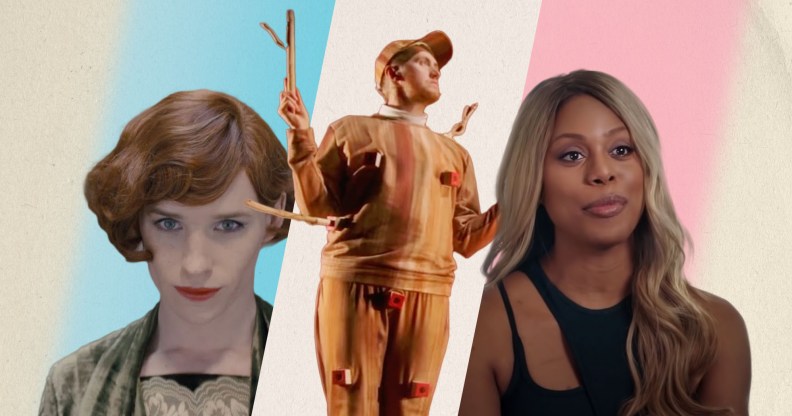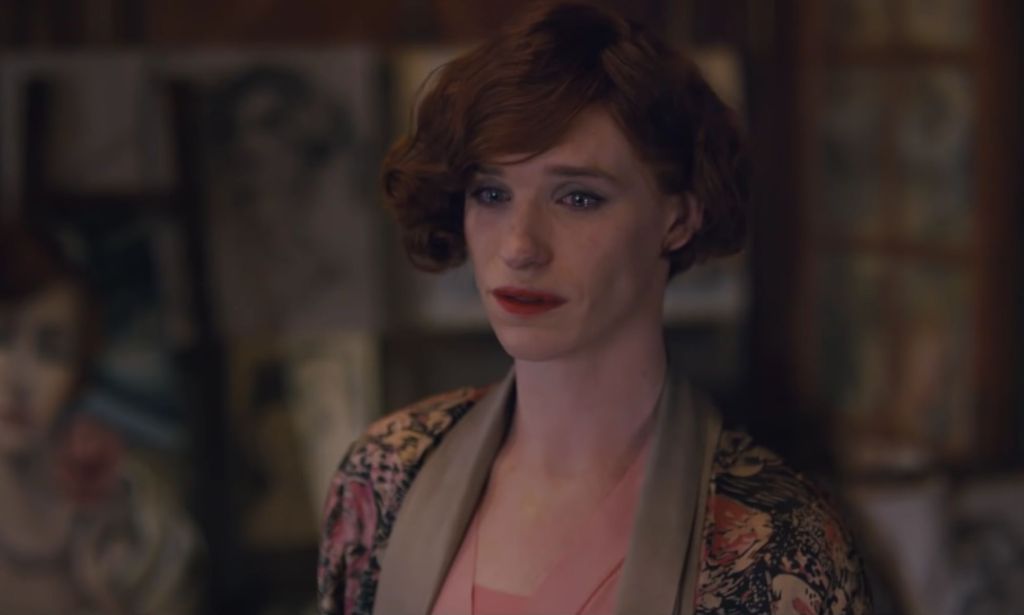Trans filmmakers giving up on Hollywood and carving their own lane: ‘Exciting stuff is happening’

Laverne Cox (R) called out Hollywoods mistreatment of trans people in Netflix’s Disclosure. (Netflix/Focus/Battersea Arts Centre)
Laverne Cox (R) called out Hollywoods mistreatment of trans people in Netflix's Disclosure. (Netflix/Focus/Battersea Arts Centre)
The most “exciting” trans filmmaking is happening far away from the mainstream.
The history of trans representation in cinema is a fairly bleak one, full of harmful stereotypes that reduce trans people to caricatures. Some films have tried to evoke reality but instead fell flat by depicting a warped version of the realities of trans experiences.
To make matters worse, many films that focus on trans stories have historically cast cisgender actors, overlooking talent in the transgender community.
Representation can only improve if more trans folk are involved in the writing, producing, casting and acting process of a film, Milo Clenshaw, programme assistant at Scottish charity, Alchemy Film & Arts, tells PinkNews.
That’s why many people in the community have given up trying to find authentic stories in Hollywood and have turned to creating their own films.
For Clenshaw, Silence of the Lambs was the first film he saw with any trans representation. Sadly, the 1991 Oscar-winner included the harmful narrative of a “transsexual” serial killer, which resulted in real-world harm to the trans community.
“When I saw that as a kid, I didn’t even know what that was,” he says. “I just knew it was this weird, creepy thing to be scared of.”
Things have certainly improved since then, though Clenshaw says that often transness is only found in subtle hints and allegories.
“You feel like you’re picking things out and finding subtle nuanced things that maybe weren’t intended to be in the film or hinted at more than overt representation,” he explains.
“It’s getting to that point now where you’re seeing more trans characters. You’re seeing a broader diversity of people in film generally.”
There’s been a reckoning in recent years about the lack of diversity and inclusion in big film studios and on-screen.
In 2015, #OscarsSoWhite sparked a conversion and push for change when the Academy nominated no people of colour in its 2015 acting categories. #MeToo helped launch a wider examination of society’s treatment of women in Hollywood and in broader society.
But there’s been a glacial movement on LGBTQ+ inclusion in Hollywood, and films that celebrate the beauty and complexity of queer life have largely been ignored at the Oscars. Those that are recognised are often tales of trauma.
Clenshaw loves 1999’s Boys Don’t Cry, starring Hilary Swank as a trans man, but he doesn’t want to see a similar story that reduces trans lives to being “traumatic” over and over again. He even avoids modern film releases because of a spate of “disappointing” movies featuring trans stories, including The Danish Girl (2015) and The Miseducation of Cameron Post (2018).
Merely having a trans character on screen doesn’t mean anything, Clenshaw says, unless there are trans creators involved in making that project. He’s seen far too many mainstream films rehashing tragic storylines or “scaremongering” against the community.

He much prefers experimental films because they allow trans people to create their own community, foster representation and share the stories that “wouldn’t necessarily get shown” in mainstream cinema.
“Local festivals, arts organisations, community-led cinemas, film groups meeting up in a town hall, late-night screenings at a cinema, people running their own festival for a day – these are the places where this stuff is happening,” he says.
“That’s where the exciting stuff is happening because it’s outside of the mainstream.
“[Trans films] are never going to be ones making money as trans people are always going to be a minority.
“We’re never going to make up the majority of the population so we’re never going to make anyone that much money as an audience. Now it’s about moving away from systems that prioritise profit over storytelling and community engagement.”
Clenshaw discusses the impact of trans representation in cinema and carving out space for trans-led stories in the new T.L.C. (aka Tender Loving Care for Trans-Led/Trans-Loved Cinema) podcast series by Inclusive Cinema.
In the second episode, he joined a panel discussion that featured insights from Rosana Cade and Ivor MacAskill on their film The Making of Pinocchio, a trans re-imagining of the famous children’s tale, as well as from members of a young, queer, neuro-divergent filmmaker group.
The creatives discussed what trans folks and allies can learn from the ideas of transness in their works and how they created things they didn’t feel existed before.

